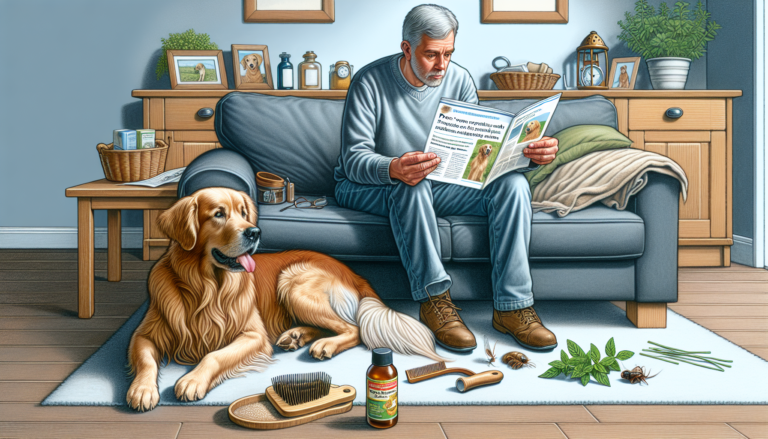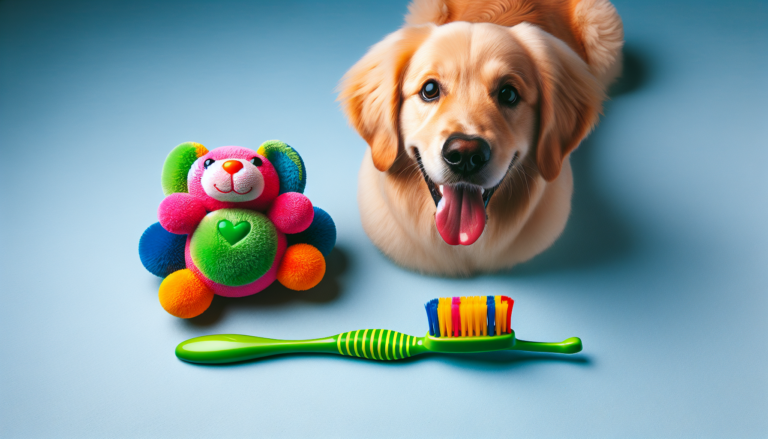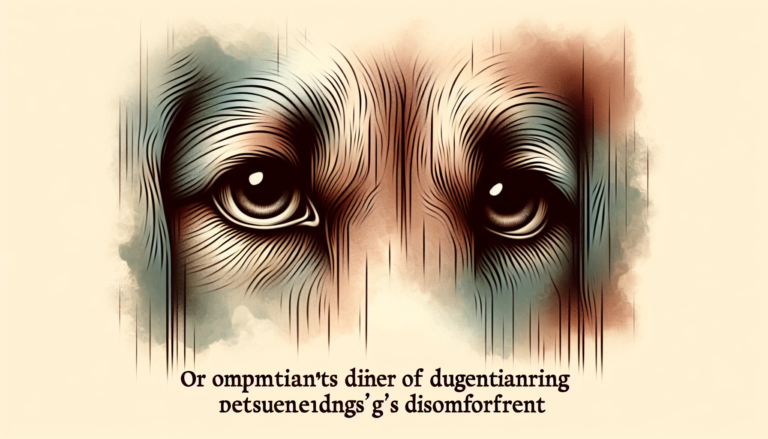Unlocking the Key to Canine Wellness: Expert Dog Health Tips
Understanding Canine Wellness
To ensure the overall wellbeing of your beloved furry friend, understanding canine wellness is essential. This section will cover the importance of dog health, common health issues in dogs, and the role of preventive care.
The Importance of Dog Health
Just like humans, dogs require proper healthcare to lead a happy and fulfilling life. Maintaining good health is crucial for their physical and mental wellbeing. A healthy dog is more likely to have a longer lifespan, experience less pain and discomfort, and enjoy a higher quality of life.
By actively prioritizing your dog’s health, you can prevent certain illnesses and address any health concerns promptly. Regular veterinary care, a balanced diet, exercise, and mental stimulation are key factors in ensuring your dog’s overall health. It’s important to remember that your pup relies on you to make informed decisions and take appropriate measures to maintain their wellbeing.
Common Health Issues in Dogs
Dogs can experience various health issues throughout their lives. Being aware of common health problems can help you recognize potential symptoms and seek appropriate veterinary care. Some of the most prevalent health issues in dogs include:
| Health Issue | Description |
|---|---|
| Obesity | Excess weight can lead to numerous health problems, including joint issues and cardiovascular disease. Maintaining a healthy weight is crucial for your dog’s overall wellbeing. For more information on dog weight management, refer to our article on dog weight management. |
| Dental Disease | Poor dental hygiene can cause dental disease, leading to pain, tooth loss, and potential systemic infections. Regular dental care and oral hygiene practices are essential for your dog’s dental health. |
| Allergies | Dogs can experience allergies to various substances, including food, environmental factors, and fleas. Identifying and managing allergies is important to prevent discomfort and potential complications. |
| Arthritis | Arthritis commonly affects older dogs and can cause joint pain, stiffness, and decreased mobility. Regular exercise, weight management, and appropriate veterinary care can help manage arthritis and improve your dog’s quality of life. |
The Role of Preventive Care
Preventive care plays a crucial role in maintaining your dog’s health and preventing potential health issues. It involves taking proactive measures to keep your dog healthy and addressing potential problems before they become more severe. Some key aspects of preventive care include:
- Vaccinations and Preventive Medications: Following a dog vaccination schedule recommended by your veterinarian helps protect your dog from contagious diseases. Additionally, preventive medications can help prevent issues such as fleas, ticks, and heartworms.
- Routine Check-ups and Health Screenings: Regular visits to the veterinarian allow for early detection of any health concerns. Routine check-ups, along with health screenings such as blood tests, help monitor your dog’s overall health and identify any potential issues.
- Dental Care and Oral Hygiene: Proper dental care, including regular teeth brushing and professional cleanings, is vital for your dog’s oral health. This helps prevent dental disease and ensures your dog’s teeth and gums remain healthy.
By understanding the importance of dog health, being aware of common health issues, and actively participating in preventive care, you can promote the overall wellbeing of your canine companion. Stay vigilant, follow appropriate guidelines for dog nutrition, exercise, grooming, and mental stimulation, and always consult with your veterinarian to address any health concerns. For more information on maintaining a healthy dog, refer to our article on signs of a healthy dog.
Essential Dog Health Tips
Keeping your furry friend healthy and happy is a top priority as a dog owner. To ensure your dog’s physical wellbeing, there are several essential health tips you should incorporate into their daily routine.
Balanced Diet and Nutrition
A balanced diet is the foundation of your dog’s overall health. Providing your dog with high-quality nutrition is essential for their growth, energy levels, and overall wellbeing. A well-balanced diet should include a mix of proteins, carbohydrates, fats, vitamins, and minerals.
When selecting dog food, look for options that are specifically formulated for your dog’s age, breed, and size. Consult with your veterinarian or refer to reputable sources, like our article on dog nutrition guidelines, to ensure you are meeting your dog’s nutritional needs. Remember to portion their food appropriately to maintain a healthy weight, as obesity can lead to various health issues.
Regular Exercise and Physical Activity
Exercise and physical activity are vital for your dog’s physical and mental wellbeing. Regular exercise helps maintain a healthy weight, strengthens muscles, improves cardiovascular health, and provides mental stimulation. The specific exercise needs of your dog will depend on their breed, age, and overall health.
Engage in activities that suit your dog’s abilities and preferences. This can include daily walks, playing fetch, swimming, or interactive games. Aim for at least 30 minutes to an hour of exercise each day, but adjust the duration and intensity based on your dog’s individual needs.
Proper Grooming and Hygiene
Proper grooming and hygiene practices are essential for your dog’s physical comfort and cleanliness. Regular grooming helps prevent matting, keeps their coat healthy, and allows you to check for any skin issues or parasites. Additionally, maintaining good hygiene practices can help prevent infections and ensure your dog smells fresh.
Grooming tasks may include brushing their coat, trimming their nails, cleaning their ears, and brushing their teeth. The frequency of these tasks will depend on your dog’s breed and individual needs. It’s important to use appropriate grooming tools and techniques to avoid causing discomfort or injury to your dog.
By following these essential dog health tips, you can ensure that your furry companion enjoys a healthy and active life. Remember to provide a balanced diet, engage in regular exercise, and maintain proper grooming and hygiene practices. For guidance on other aspects of your dog’s health, such as vaccinations and weight management, refer to our articles on dog vaccination schedule and dog weight management. Lastly, keep an eye out for signs of a healthy dog, as detailed in our article on signs of a healthy dog.
Mental and Emotional Wellbeing
Ensuring the mental and emotional wellbeing of your canine companion is just as important as their physical health. Dogs are social beings that thrive on mental stimulation, socialization, and a stress-free environment. In this section, we will explore some essential tips to support your dog’s mental and emotional wellbeing.
Mental Stimulation and Enrichment
Keeping your dog mentally stimulated is vital for their overall wellbeing. Dogs are intelligent creatures that require mental challenges to stay engaged and content. Provide them with interactive toys, puzzle games, and treat-dispensing toys that encourage problem-solving and engage their minds. Engaging in regular training sessions with your dog also provides mental stimulation while strengthening the bond between you and your furry friend. For more information on mental stimulation for dogs, check out our article on dog enrichment activities.
Socialization and Interaction
Socialization plays a crucial role in shaping your dog’s behavior and promoting their emotional wellbeing. Expose your dog to different environments, people, and other animals from a young age. This helps them become well-adjusted and confident in various situations. Encourage positive interactions with other dogs through supervised playdates or visits to dog parks. Regular walks and outings allow your dog to explore their surroundings, experience new smells, and interact with the world around them. Remember to always prioritize your dog’s safety and monitor their interactions. Our article on dog socialization provides more in-depth tips on how to socialize your furry friend.
Creating a Safe and Stress-Free Environment
A safe and stress-free environment is essential for your dog’s mental and emotional wellbeing. Create a designated space for your dog with comfortable bedding, toys, and access to fresh water. Provide a quiet retreat area where they can relax and unwind. Minimize exposure to loud noises, excessive commotion, and stressful situations which can lead to anxiety in dogs. Positive reinforcement training techniques and consistent routines can also help create a sense of security and reduce stress. For more tips on creating a stress-free environment for your dog, refer to our article on dog stress relief.
By prioritizing your dog’s mental and emotional wellbeing, you are ensuring a happier and healthier companion. Remember to engage your dog in mental stimulation activities, provide opportunities for socialization and interaction, and create a safe and stress-free environment. These tips, along with proper physical care and regular veterinary check-ups, contribute to your dog’s overall wellness and happiness.
Regular Veterinary Care
Regular veterinary care plays a vital role in maintaining your dog’s overall health and wellbeing. It involves various aspects, including vaccinations and preventive medications, routine check-ups, health screenings, and dental care. By prioritizing these aspects of veterinary care, you can help ensure the physical wellbeing of your furry companion.
Vaccinations and Preventive Medications
Vaccinations are an essential part of preventive healthcare for dogs. They protect your dog against common and potentially serious diseases. Vaccination schedules may vary depending on your dog’s age, breed, and local regulations. To determine the appropriate vaccination schedule for your dog, consult with your veterinarian or refer to our article on dog vaccination schedule.
In addition to vaccinations, preventive medications can help safeguard your dog’s health. These medications include flea and tick preventives, heartworm preventives, and deworming treatments. Your veterinarian can recommend the most suitable preventive medications for your dog based on their individual needs.
Routine Check-ups and Health Screenings
Regular check-ups with your veterinarian are crucial for monitoring your dog’s health and addressing any potential issues early on. During these check-ups, your veterinarian will conduct a thorough examination, assess your dog’s overall health, and provide guidance on maintaining their wellbeing. Routine check-ups also allow for the detection of any underlying health conditions that may require further investigation or treatment.
Health screenings, such as blood tests and urinalysis, can provide valuable insights into your dog’s internal health. These screenings can help identify potential issues, such as organ dysfunction or underlying diseases, even before visible symptoms appear. Your veterinarian can recommend the appropriate health screenings for your dog based on their age, breed, and medical history.
Dental Care and Oral Hygiene
Proper dental care is often overlooked but is essential for your dog’s overall health. Dental issues can lead to pain, infection, and even systemic health problems. Regular dental care and oral hygiene practices are crucial for maintaining your dog’s oral health.
Brushing your dog’s teeth regularly with a dog-specific toothbrush and toothpaste can help prevent the buildup of plaque and tartar, reducing the risk of dental disease. Additionally, providing dental chews or toys that promote chewing can help improve your dog’s oral hygiene and reduce plaque formation.
Professional dental cleanings performed by your veterinarian may be necessary to address advanced dental issues. Your veterinarian can assess your dog’s dental health during check-ups and recommend appropriate dental care measures.
By prioritizing regular veterinary care, including vaccinations, preventive medications, routine check-ups, health screenings, and dental care, you can help ensure the physical wellbeing of your beloved canine companion. Remember to consult with your veterinarian to establish a tailored veterinary care plan that meets the specific needs of your dog. For more information on maintaining your dog’s wellbeing, refer to our article on signs of a healthy dog.
Signs of a Healthy Dog
Ensuring the wellbeing of your furry companion is essential for their overall quality of life. By understanding the signs of a healthy dog, you can proactively monitor their physical and emotional state. Here are some key indicators to look out for:
Physical Indicators of Good Health
Observing your dog’s physical condition is an important part of assessing their overall health. Here are some physical signs that may indicate your dog is in good health:
-
Healthy Coat: A shiny and lustrous coat is often a sign of good health. Pay attention to the texture and appearance of your dog’s fur. Dry, dull, or excessively shedding fur could be indicative of underlying health issues or poor nutrition.
-
Clear Eyes: Bright and clear eyes are a positive sign. The whites of the eyes should be white, and there should be no excessive tearing, redness, or discharge. Cloudiness or changes in eye color may indicate eye problems and should be evaluated by a veterinarian.
-
Clean Ears: Healthy ears should be clean, without a strong odor, redness, swelling, or discharge. Regularly check your dog’s ears for any signs of infection or inflammation.
-
Fresh Breath and Healthy Teeth: Good oral health is important for overall wellbeing. Your dog’s breath should be relatively odorless, and their teeth should be clean and free from tartar buildup. Regular dental care, including brushing and professional cleanings, can help maintain oral hygiene.
-
Optimal Weight: Dogs should maintain a healthy weight according to their breed and size. Obesity can lead to various health problems, including joint issues and heart disease. Monitor your dog’s weight and consult your veterinarian for guidance on dog weight management.
Behavioral Signs of Wellbeing
A dog’s behavior can provide valuable insights into their emotional and mental state. Here are some behavioral signs that may indicate your dog is well:
-
Energetic and Active: A healthy dog is often enthusiastic and energetic. They should display interest in their surroundings, engage in play, and have a good appetite. Any sudden changes in energy levels or appetite may warrant further investigation.
-
Alertness and Responsiveness: Dogs that are mentally well tend to be alert and responsive to their environment. They show interest in their surroundings, react appropriately to stimuli, and engage in social interactions.
-
Positive Mood and Temperament: A happy dog generally exhibits a positive mood and temperament. They may wag their tail, have relaxed body language, and display affection towards their owners and other animals. Aggressive or withdrawn behavior may indicate underlying issues that require attention.
Monitoring Your Dog’s Health at Home
While regular veterinary care is vital, monitoring your dog’s health at home is equally important. Here are some ways to proactively track your dog’s wellbeing:
-
Regular Health Checks: Conduct routine physical examinations at home, checking for any changes in their body, skin, or behavior. Look for lumps or bumps, changes in appetite or water intake, and any signs of discomfort.
-
Maintain a Healthy Diet: Proper nutrition plays a crucial role in your dog’s overall health. Ensure they are receiving a balanced diet appropriate for their age, breed, and activity level. Consult your veterinarian for dog nutrition guidelines and feed them high-quality dog food.
-
Exercise and Mental Stimulation: Regular exercise helps maintain your dog’s physical fitness and mental wellbeing. Engage in activities that stimulate their mind and body, such as walks, playtime, and puzzle toys.
By being attentive to the physical and behavioral signs of a healthy dog, you can take proactive steps to maintain their wellbeing. Regular veterinary care, adhering to dog vaccination schedules, and promptly addressing any concerns will contribute to your dog’s long and happy life. Remember, if you notice any changes in your dog’s health, consult your veterinarian for a professional evaluation.







